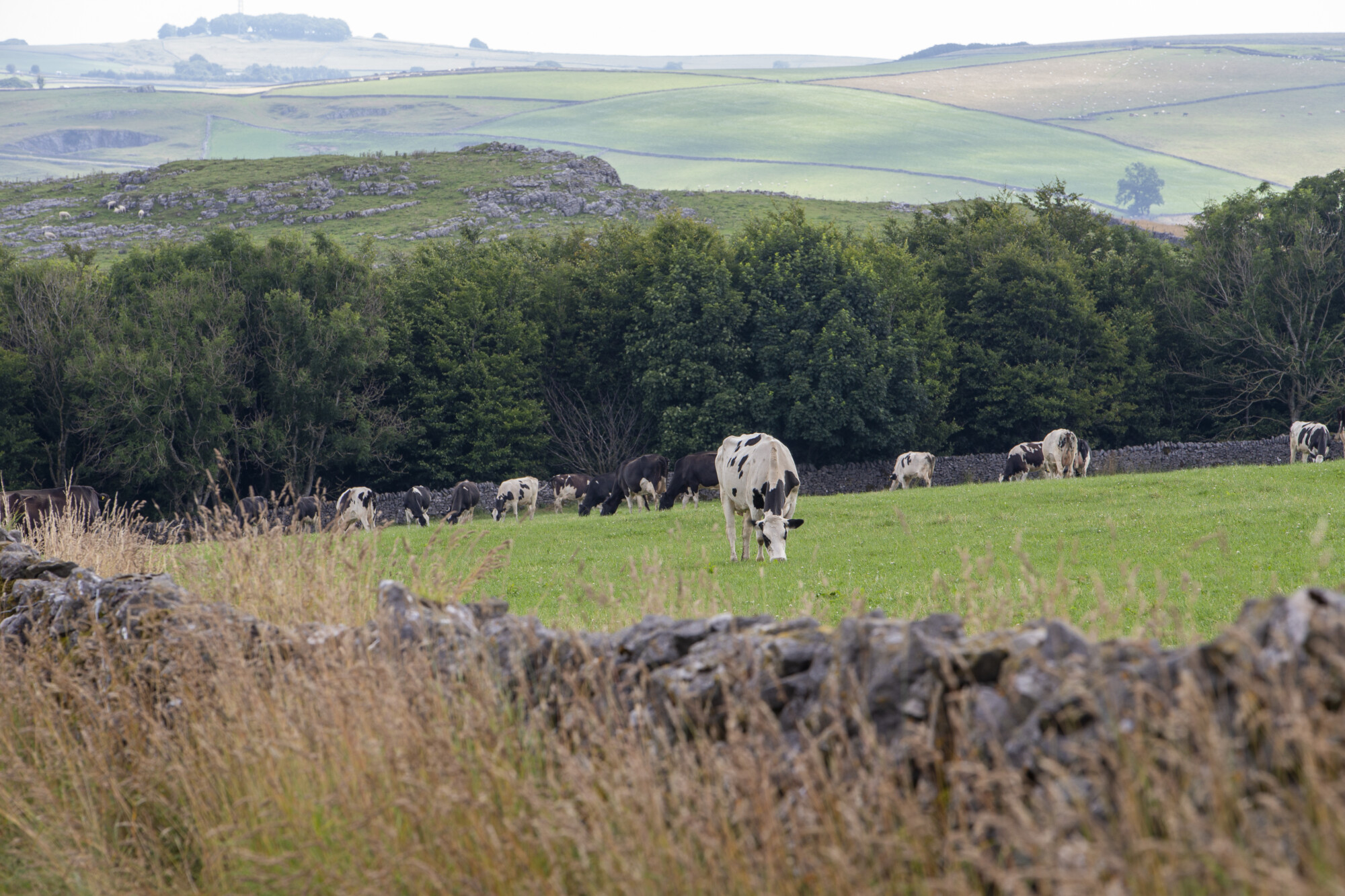New report reveals carbon footprint data from almost 2,000 dairy farms
20th August 2021
The collective findings of the carbon footprints of 1,964 UK dairy farms have been released by the farmer owned cooperative Arla Foods as it reveals how its farmers are using data to drive down the carbon footprint of its milk.
The findings, which are summarised in a new report, “A sustainable future for British dairy” show that Arla UK‘s dairy farmers are already producing milk with 1.13kg CO2e per kg of milk, around half the global average.
Arla farmer and member of the Arla Foods Board of Directors, Arthur Fearnall commented on the new report; “There are a lot of differences in how dairy is produced around the world. As a cooperative, Arla farmers want to help the public understand dairy farming better. We have put a huge amount of time and investment into collating the data which we will now use to make decisions on farm. I hope our report is another step on that journey to provide better food education. We want the British public to feel the same sense of reassurance and pride about just how committed Arla farmers are to producing their dairy products as sustainably as possibly.”
According to the report, the carbon currently coming from Arla farms is emitted from certain key areas with cow digestion (46%) and cow feed (where and how it is produced) (37%) contributing the most carbon by a considerable amount.
The data also finds that there is no one way to farm sustainably. It is the farmers who balance their resources successfully whose farms create the lowest amount of greenhouse gas emissions.
The findings will help the farmer owned dairy cooperative continue its journey to meet its science based targets of a 30% emissions reduction per kg of milk at farm-level by 2030, a first step on its journey to carbon net zero.
The report also highlights the measures farmers are already taking to reduce their carbon outputs, such as precision slurry-spreading techniques, using manure for energy, and reducing the amount of protein in cow diets
Graham Wilkinson, Group Agriculture Director for Arla Foods commented “We know that to feed a growing population, we have to produce natural, nutritious and affordable food that is made in the most sustainable way. Dairy can and should be part of a sustainable diet and our new report is a major step forward in demonstrating just how much action is already underway across Arla farms as we move towards carbon net zero dairy production.
“I’m really pleased that our farmer owners have collated this data and agreed to release it. All food production creates emissions, but our farmers are stepping up to help with the climate and environmental crisis we face. If we want more biodiversity, fewer emissions through natural processes and a reduced reliance on ultra-processed foods, then the only answer is to support British farmers, who already have many of the answers, but not always the financial resources to implement them.”
The full report can be read here

